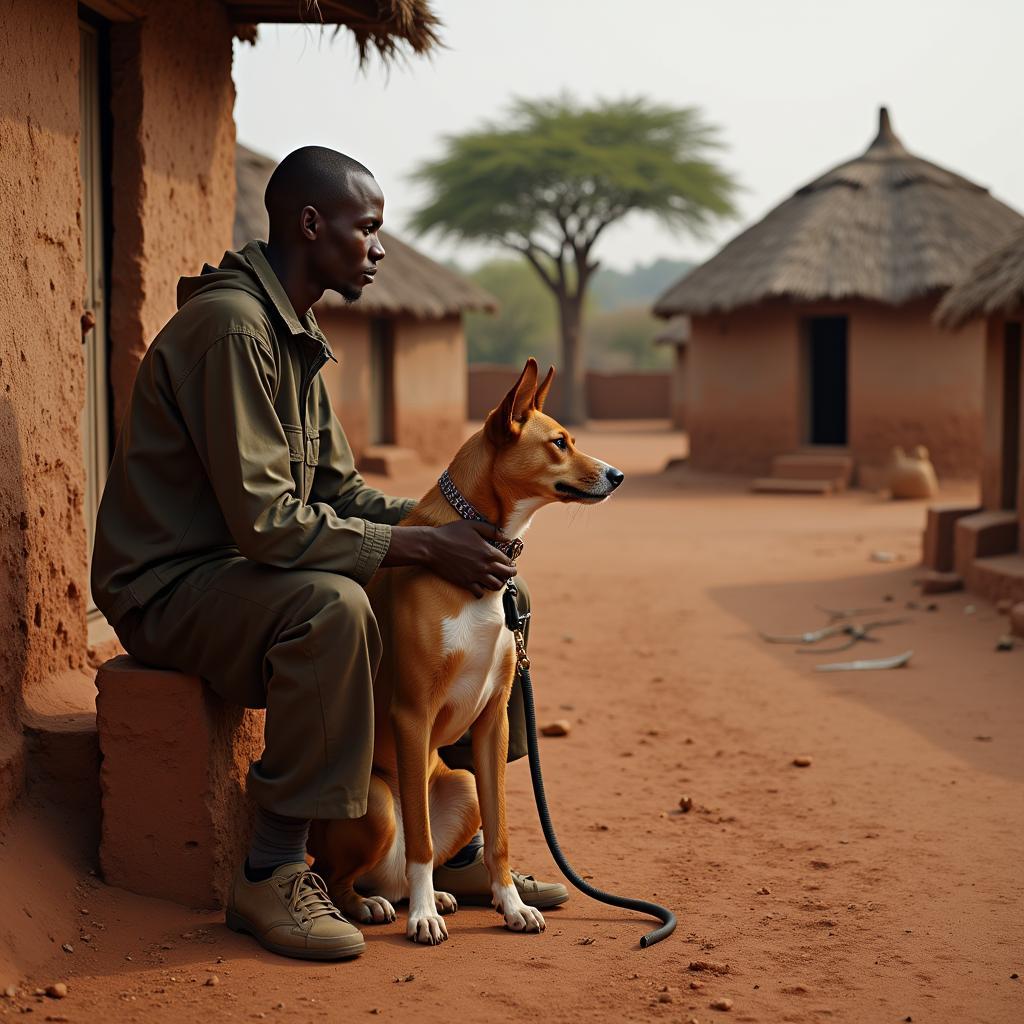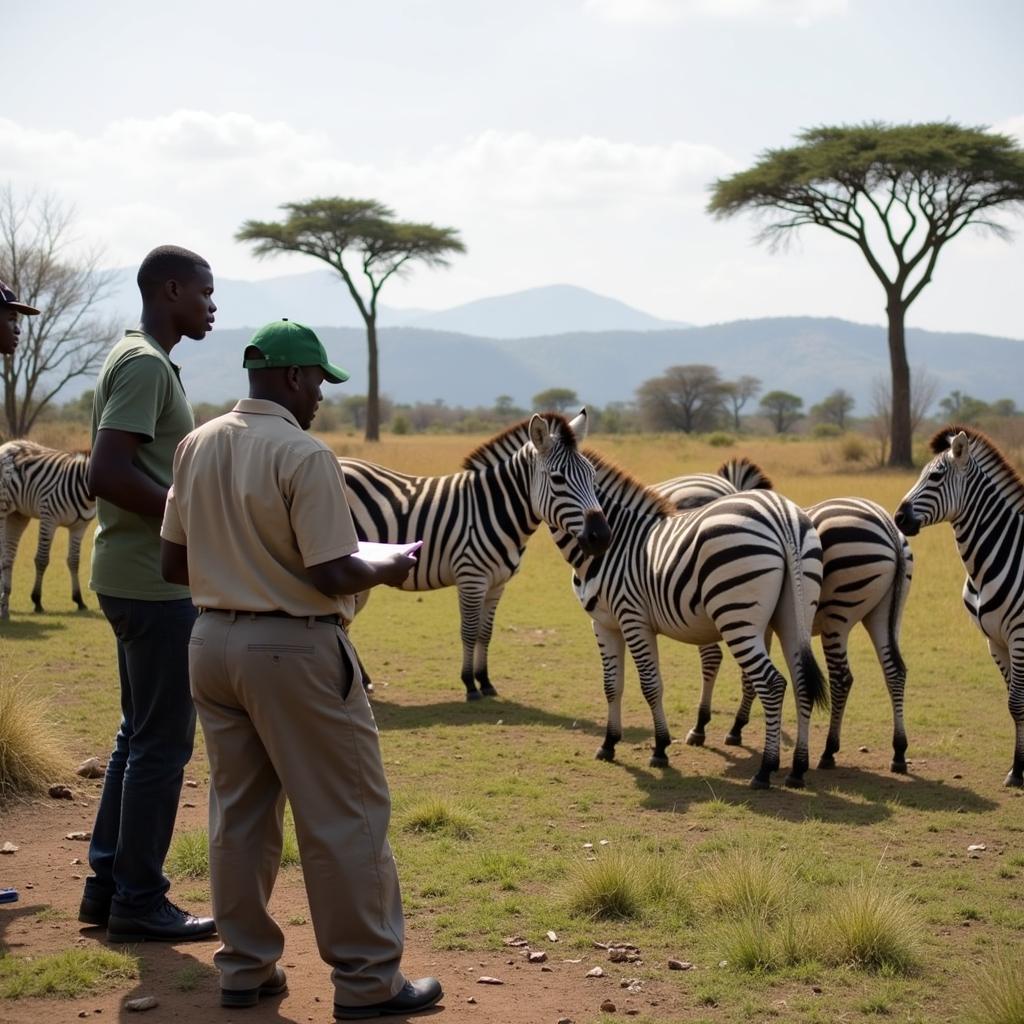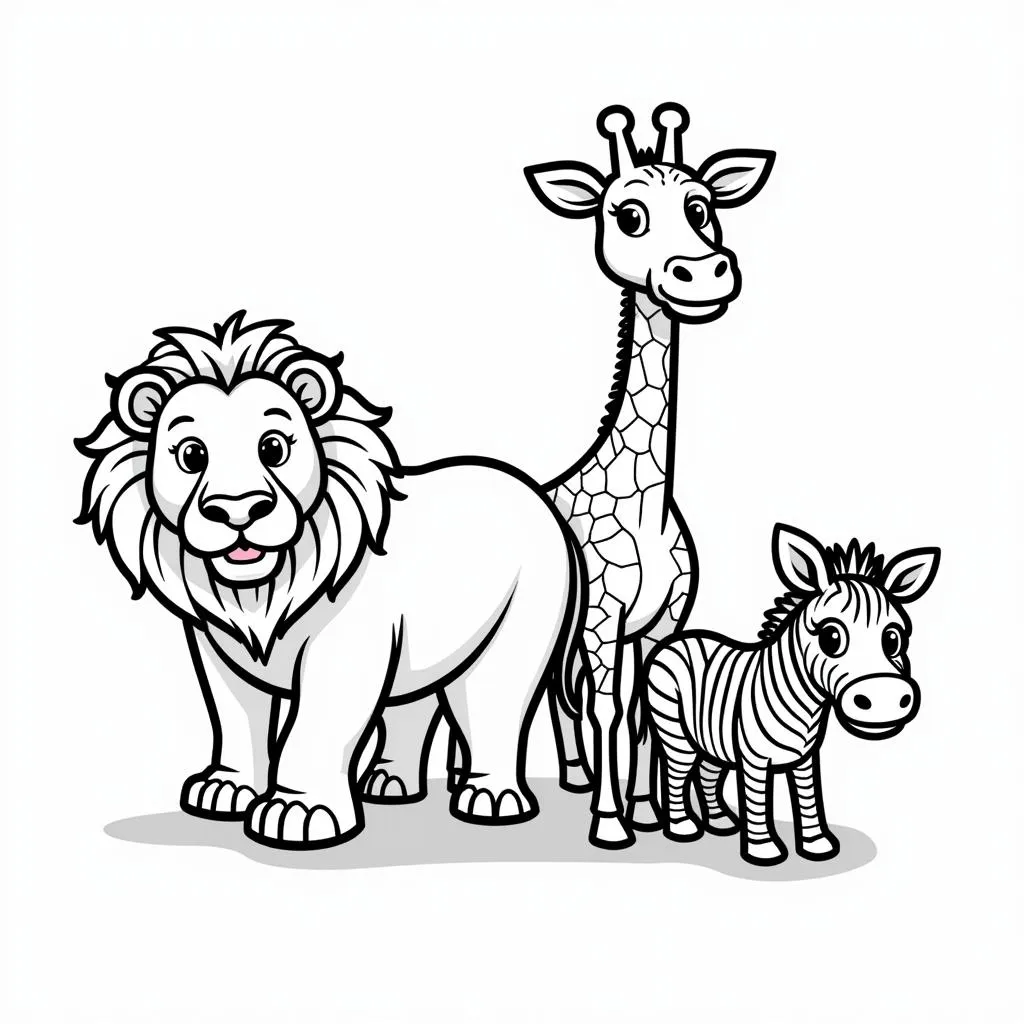Unveiling the Secrets of African Domestic Dogs
African Domestic Dogs represent a fascinating tapestry woven from ancient lineages, diverse environments, and the intricate relationships between humans and animals. These canines, while sharing a common ancestor with familiar breeds, have carved out unique niches in the African landscape, adapting to the challenges and opportunities presented by this vibrant continent.  Basenji dog sitting with its owner in a rural African setting
Basenji dog sitting with its owner in a rural African setting
A Legacy of Diversity: Exploring African Domestic Dog Breeds
Africa is home to a surprising array of domestic dog breeds, each with its own distinct characteristics and history. Some, like the Basenji, are known for their unique vocalizations, a yodeling sound rather than a bark. Others, like the Rhodesian Ridgeback, were developed for specific purposes, such as hunting large game. This breed’s defining feature, a ridge of hair growing in the opposite direction along its back, makes it easily identifiable. african hunting dog breed These breeds offer a glimpse into the rich cultural and ecological diversity of the continent. What influences shaped their development and what roles do they play in African communities today?
Basenji: The Barkless Wonder
The Basenji, often referred to as the “barkless dog,” is a breed steeped in ancient history. Originating in Central Africa, these dogs are believed to be one of the oldest domesticated breeds, their images appearing in ancient Egyptian art. Their inability to bark makes them intriguing companions. They are known for their intelligence, independence, and striking resemblance to canine depictions found in pharaohs’ tombs.
Rhodesian Ridgeback: A Hunter’s Companion
Bred in Southern Africa, the Rhodesian Ridgeback possesses a unique characteristic – a ridge of hair along its back that grows in the opposite direction. These powerful and athletic dogs were originally developed to hunt lions and other large game, showcasing their courage and resilience. They remain popular hunting companions and family guardians, prized for their loyalty and protective instincts.  Rhodesian Ridgeback dog on a safari in the African savanna
Rhodesian Ridgeback dog on a safari in the African savanna
What do African domestic dogs eat?
African domestic dogs, like their counterparts elsewhere, have varied diets depending on their environment and lifestyle. In rural areas, they often subsist on a combination of scraps from human meals, hunted prey, and foraged food. In more urban settings, commercially produced dog food is becoming increasingly common. What are the traditional feeding practices in different African communities and how are these evolving?
Traditional Diets vs. Modern Feeding Practices
Traditionally, many African domestic dogs relied heavily on what they could scavenge or hunt. This often included small mammals, birds, insects, and whatever food scraps were available from their human companions. As urbanization increases, the diets of African dogs are shifting towards commercially produced kibble and other processed foods, mirroring global trends in pet ownership. african bear eats This shift presents both advantages and disadvantages, including the potential for improved nutrition but also the risk of health problems associated with processed foods.
The Human-Canine Bond in Africa
The relationship between humans and dogs in Africa is as diverse and multifaceted as the continent itself. Dogs serve various roles, from loyal companions and protectors to hunting partners and assistants in herding livestock. african hunting dog puppy This bond reflects a shared history and a mutual dependence that has shaped the lives of both humans and canines. How do these roles differ across cultures and how do they reflect the specific needs and values of different communities?
Dr. Fatima Mohammedi, a prominent veterinarian specializing in African canine breeds, notes, “The bond between humans and dogs in Africa is often deeply ingrained in cultural traditions, reflecting the important roles dogs play in various aspects of daily life.”
Dogs as Working Partners
In many rural communities, dogs play essential roles in herding livestock, guarding property, and assisting with hunting. These working relationships demonstrate the intelligence, adaptability, and trainability of African domestic dogs. african dog vs hyena These dogs are not merely pets; they are valuable partners contributing to the livelihoods and security of their human families.
Conclusion: Appreciating the Rich Tapestry of African Domestic Dogs
African domestic dogs represent a rich tapestry of breeds, histories, and human-animal interactions. From the barkless Basenji to the powerful Rhodesian Ridgeback, african dog images these canines offer a fascinating glimpse into the diverse cultures and environments of the African continent. By understanding their unique characteristics and the roles they play in African communities, we can gain a deeper appreciation for the complex and enduring bond between humans and their canine companions.
FAQ
- What are some common African dog breeds?
- What are the traditional roles of dogs in African societies?
- How are modern feeding practices changing the diets of African domestic dogs?
- What are the unique characteristics of the Basenji breed?
- Why is the Rhodesian Ridgeback considered a good hunting dog?
- How do African domestic dogs adapt to different environments?
- Where can I find more information about specific African dog breeds?
Other Questions You Might Have
- Are there any conservation efforts focused on preserving rare African dog breeds?
- What are the health challenges faced by African domestic dogs?
- How can I support organizations working to improve the welfare of dogs in Africa?
You can find more information on related topics on our website. We also have articles on African wildlife, including african bear eats and comparisons like african dog vs hyena.
For assistance, please contact us: Phone: +255768904061, Email: kaka.mag@gmail.com, or visit us at Mbarali DC Mawindi, Kangaga, Tanzania. We offer 24/7 customer support.

